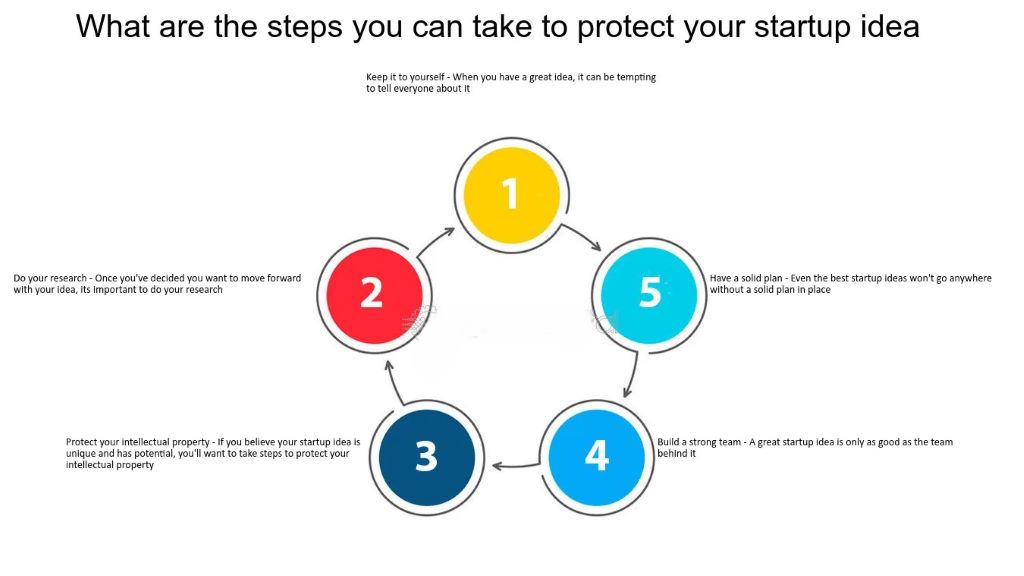Protecting Your Big Idea: How to Safeguard Your Business Concept from Theft

In the world of business, a great idea is like a precious gemstone – it has immense potential value, but it’s also vulnerable. It’s natural to worry about someone stealing your concept and running with it, potentially beating you to the punch in your own market. While there’s no foolproof way to eliminate this risk, there are smart strategies you can employ to protect your intellectual property and minimize the chances of unwelcome competition capitalizing on your hard work.
Understand: Ideas Are Tricky to Protect
First, it’s crucial to realize that ideas themselves are notoriously difficult to legally protect. Concepts, alone, generally can’t be copyrighted or patented. What intellectual property (IP) laws can protect are the tangible expressions of those ideas: code, specific designs, written plans, or unique formulas. This means an idea in and of itself isn’t usually enough to stop someone determined to copy you.

Focus on These Preventative Measures
Don’t despair! While the above might sound bleak, the focus should be on making it difficult and unattractive for someone to steal your work and benefit from it. Here’s a multi-pronged approach:
- Be Selective About Sharing: The old adage “loose lips sink ships” applies to business ideas too. In the early stages, limit who you discuss your idea with. Focus on trusted advisors, potential mentors, or individuals bound by professional confidentiality agreements. Avoid broadcasting your grand plan on social media or to casual acquaintances.
- The Power of the NDA: A Non-Disclosure Agreement (NDA) is a simple but effective tool. Before in-depth conversations about your idea with potential investors, partners, or employees, have them sign an NDA. This legally binds them to not disclose or use the information you share. Find templates online, or have a business lawyer draft one.
- Documentation is Key: Keep meticulous records of your idea’s development. Date notebooks, save emails, document design iterations – this creates a paper trail proving you were the originator if a dispute arises.
- Strategic Use of IP Laws: While ideas themselves might be tricky, certain aspects of your business might be eligible for IP protection:
- Trademarks: Protect your intended business name, logo, or unique branding elements.
- Patents: If your idea involves a novel invention, process, or design, explore obtaining a patent.
- Copyrights: Applicable to original written works, software code, or artistic elements.
- Building ‘First Mover’ Advantage: Often, the best defense is a great offense. Don’t let fear of theft paralyze you. Focus on getting your idea to market with excellent execution. Being the first to establish your product or service creates brand recognition and customer base – a huge hurdle for copycats to overcome.
Is It Really Worth Stealing?
Take a step back and consider how truly unique your idea is. It’s healthy to question whether it’s so groundbreaking and potentially lucrative that someone would invest the considerable effort required to steal and execute it successfully. This reality check can alleviate some paranoia.
The Power of Partnerships and Community
Sometimes, the path to protection lies in strategic collaboration. Consider if your idea could be strengthened through a partnership with an established business or individual who brings complementary skills. Building a community around your concept, even at an early stage, can foster goodwill and a sense of ‘ownership’ by your initial supporters, discouraging imitators.
How to Create Business Ideas? Unleash Your Entrepreneurial Power
Additional Considerations
- Hire a Lawyer: For complex IP situations or substantial investments, consult a business attorney specializing in intellectual property.
- Provisional Patents: If a full patent seems costly, a provisional patent application is a cheaper option to establish an early priority date for your invention.
- Don’t Let Fear Hold You Back: The entrepreneurial spirit thrives on taking calculated risks. Let your determination to bring your idea to life outweigh your fear of theft.
Remember: Execution is Often Key
Many successful businesses aren’t founded on entirely groundbreaking ideas, but rather superior execution of a familiar concept. Focus on building a solid business plan, understanding your customers, and delivering an outstanding product or service. These factors are far harder to replicate than a simple idea.



